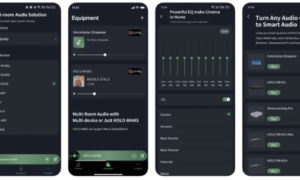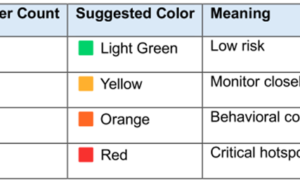There has been a shift in AI from the drawing boards and research institutions and its use has already started impacting the health industry and affecting the healthcare plan of action. Doctor AI, powered with machine learning and advanced algorithms helps make a significant shift in the way doctors conduct their practice. The use of Artificial Intelligence is perhaps one of the most advanced systems in the healthcare which made a revolution in diagnosis, personalized treatment and operational processes.
Improving the Odds: The Case of AI-Enhanced Diagnostic Accuracy
One sphere where AI has certainly changed the game is in the provision of enhanced diagnostic accuracy. Most of the time, diagnosis processes will depend on the expertise of the doctor, and human beings are error-prone. In contrast, Doctor AI is capable of sifting through large quantities of data (medical records, images, tests, etc) more efficiently than any human being on this planet can do. Machine learning algorithms are used for training on millions of medical cases which helps them to understand intuitively and make predictions that may not be obvious to a human. For example, AI systems have already demonstrated a proven capacity to identify even minute signs of diseases such as neoplastic processes, cardiopathies, and some neurological disorders. This is a remarkable advance in areas such as radiology where early detection leads to timely diagnosis and thereby has a positive impact on treatment.
Personalizing Treatment Plans
An additional noteworthy benefit of Doctor AI is treatment plan personalization. AI uses various data circles including a patient’s medical history, genes, lifestyle status, and real-time health status to point out possible treatment options. This approach is helpful since patients are treated in an ideal manner instead of using a general approach. For persistent diseases such as a diabetic patient or someone with hypertension, AI is able to evaluate the status of a patient and provide treatment plans which are appropriate at that moment so as to enhance care and improve the prognosis.
Enhancing Operational Efficiency
Aside from diagnosis and treatment, Doctor AI is also making healthcare operations more efficient. Weekly and appointment scheduling, EHR creation, and patient intake are all administrative overloads that can be offloaded to AI systems. This effectively relieves the administrative burden from healthcare givers so as to attend more to patients. AI also manages patient information and records in an orderly manner so as to reduce fragmentation errors and improve the efficiency of work in a health facility.
The Future of Doctor AI
Doctor AI could help patients communicate with doctors more easily than ever before. AI-powered applications that leverage AI technologies enable easier, more accurate, faster, and more efficient interpretation of complex information for patients and other doctors which allows the provision of patient-centered nursing care. The advanced combination of human knowledge and AI technology will also help change the scope and quality of healthcare forever.
To summarize, Doctor AI is advancing the field of medicine by providing better and more accurate diagnostics, tailoring treatments, and streamlining procedures. And as AI develops further, so will its quality of care and the entire healthcare system.





























